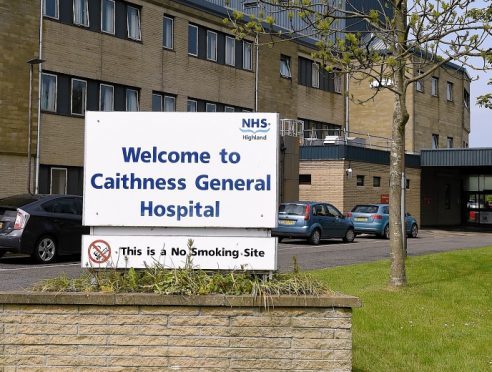Caithness General Hospital is set to become the sole holder of a prestigious global award and be attributed international status for their work to reduce the impact of pharmaceuticals on the environment.
The Caithness hospital is to get the Alliance of Water Stewardship standard after staff have been working towards reducing pollution caused by medicines.
If awarded as expected in the new year, Caithness General Hospital would become the first hospital in the world to hold the award.
>> Keep up to date with the latest news with The P&J newsletter
Elaine Mead, NHS Highland’s chief executive, who has championed the project, said: “Healthcare is a major polluter and through this project Caithness General Hospital is leading the way in changing that. We have a strong economic and social responsibility to the communities we serve, and it is vital that we minimise the impact on the environment of the medicines we prescribe.”
It is estimated that between 30% and 90% of all medicines taken orally end up in the waste water system as an active substance, with around £300 million worth of medicines being discarded, often through people flushing them down the toilet.
Sharon Pfleger, a consultant in pharmaceutical public health with NHS Highland, said: “We are trying to reduce the prescription of medicines that can be harmful to the environment. However, in doing so we will never put environmental concerns above patient welfare. The patients will always come first.
“We would urge people not to dispose of medicines down the toilet, but to return them to a pharmacy for safe disposal.”
The award news comes on the back of the Green Breakthrough Partnership after NHS Highland teamed up with the Scottish Environment Protection Agency, Scottish Water, Highland and Islands Enterprise (HIE) and the University of the Highlands and Islands’ Environmental Research Institute in Thurso.
The teams involved hope the research and lessons learnt from implementing the partnership at the Caithness General Hospital can be shared with other hospitals across the region.
Diane Duncan, HIE’s head of low carbon, added: “At a time when anti-microbial and pharmaceutical pollution have been going to the top of the agenda as being ‘up there’ with climate change as the biggest threats to humanity, it makes sense to take pre-emptive action. Ultimately, if this sort of pollution is not addressed, it will have impacts on biodiversity and our wider water assets.
“It is ground breaking, innovative and forward looking and proactive for NHS Highland to have rolled up their sleeves and made this happen. Rather than wait for chemical build-up in the environment to have an impact, they are ensuring this won’t happen.
“Rolling out the learning will hopefully be the next step and this learning will also contribute to the international knowledge exchange across the Alliance for Water Stewardship membership.”
